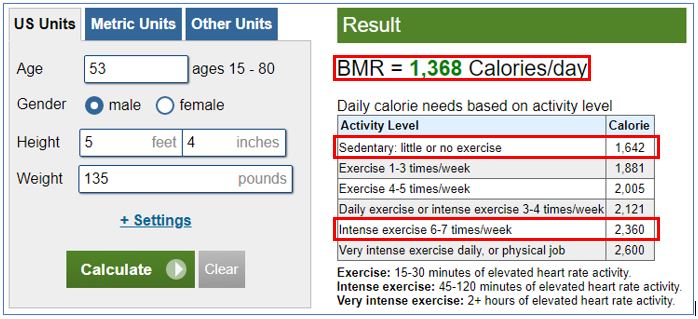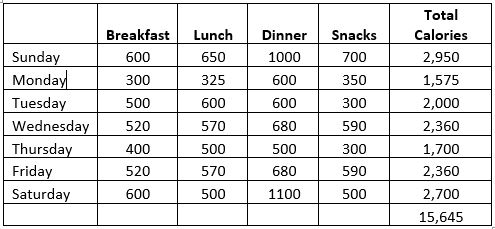Fundamentally speaking, the key to weight loss is diet and exercise. But what does that really mean in practice? It is severe calorie deprivation and hours in the gym? Surprisingly, no. The simplest way to improve your overall health and lose weight is by ruthlessly adhering to the 80/20 rule for simple weight loss.
What is the 80/20 rule? Read on my friends and you’ll see weight loss and fitness has been made more complicated than it needs to be.
Exercise is easy….
There are two ways the 80/20 rule is applied when it comes to weight loss. One way is exercise.
Exercise is touted as the sure path to weight loss. Magazine covers scream “Lose weight with these fat blasting moves!” while Google and Pinterest searches reveal “10 Ways to Lose 10 Pounds by Walking 10K Steps a Day”. New gym memberships skyrocket every January as people recommit to finally losing weight as part of their New Year’s resolutions.
Exercise is easy. Regardless of your preferred mode of exercise, it’s a one and done effort every day. Whether you devote an hour to walking, CrossFit, yoga, Pilates, running, weight training, biking, swimming (you see my point) once that hour is done, you’re done. You’ve put forth the needed effort for the day and you can go about your business.
Unfortunately, exercise alone will not yield substantial weight loss. It’s only 20% of the 80/20 rule for guaranteed weight loss.
Dieting is hard….
If it isn’t already obvious, the second way the 80/20 rule is applied is dieting. At 80%, it’s the biggest part.
Those same magazine covers, Google and Pinterest searches that scream about weight loss through exercise, also shout “These 10 Fat Burning Foods Will Shrink Your Waist” or “Drop 10 Pounds in One Week with this Easy Cucumber Diet!” These headlines are sexy, and they certainly grab your attention. And while they may have a (small) element of truth to them, by themselves they are ineffective. In some cases, they can even be harmful.
Unlike exercise, dieting is hard. It’s not a one and done effort. It is a continual process of making food choices that over the course of a day or week equal a calorie deficit. Being in a calorie deficit is the only way to lose weight.
You can’t exercise your way out of a bad diet
“Oh yes I can!”
Really – you can’t. It’s a matter of science, and the science supports this.
We get energy from food. We expend energy to move and stay alive.
This fundamental relationship between energy in and energy out is known as energy balance. Energy balance is a fundamental law of thermodynamics. Energy can’t be created or destroyed, only transferred.
That means:
- If we take in more energy than we use or excrete, we gain weight.
- If we take in less energy than we use or excrete, we lose weight.
- If we take in the same amount of energy than we use or excrete, we stay the same.
This is true regardless of the macronutrient composition of our diets, our specific food choices, what time of day we eat, or any other details of our nutritional plan.
So, if I weight train 4 days a week and do HIIT training 2 days a week, but continue to overeat, I’ll never lose weight at all and more than likely, end up gaining weight.
Let’s look at some numbers to see what this all means in practice.
Basal Metabolic Rate (BMR)
Your BMR is the rate at which you burn calories while at rest or post digestion when your digestive system is inactive. There are lots of online calculators available to help calculate this measurement, but I use this one.
For my age, weight, heigh and sex, my body needs 1,368 calories just to sustain bodily functions: digestion, breathing, keeping us warm, keeping our heart pumping – even thinking requires energy.
Once I factor in daily life activities that isn’t deliberate, such as cleaning, moving around, fidgeting, yardwork, etc., my caloric needs go up to 1,642.
Looking at exercise activities, assuming 6 days a week, my calorie requirements go up to 2,360. Whoa! You mean if I exercise, I can eat that much?!

Not really….
Let’s look at some food – or energy – intake to understand why.

These selections represent a traditional breakfast, lunch, dinner and snacks of many Americans. And it also represents why….
You can’t exercise your way out of a bad diet.
Even though I’ve worked my butt off at the gym, I’m still eating out of balance. Done consistently, weight gain is the result.
This is why diet is 80% of any weight loss equation.
Applying the 80/20 rule
Does this mean we can never have pizza and ice cream again if we want to lose weight?
Absolutely not!
The fact is, it would require intense diligence to hit your calorie intake every day without going over. That’s exhausting to do and hard to maintain. Take it from a former macro counter.
Life happens. Sometimes you want pizza for breakfast, ice cream for lunch and cupcakes for dinner. (Been there, done that).
There is another way to apply to 80/20 rule, and that is to eat to at or below your calorie requirements 80% of the time. Consistency, as with anything, is more important than meeting the same target day after day.
Massaging the numbers
Remembering that our calorie requirements are 2,306 per day. That translates to 16,142 calories per week. Some days, you might not have a hearty appetite, and you eat less. Some days you may want to go out and celebrate an occasion with family and friends, and you go overboard.
This is how the 80% rule works: over some days, under on other days. It might look like this:

By this example, you can see that a couple of days, you totally blew your calorie limit. Some days you were spot on. And some days you didn’t even come close to your limit.
The net result? When you take in less energy than we use or excrete, you lose weight.
Now to be clear, one week of this isn’t enough to obtain striking results. Again, consistency in the key.
Accounting for activity – or non-activity
The scenario above assumes that I’m working out 6 days a week, at a very high intensity. However, some of you may recall that I’m convalescing from reconstructive knee surgery. That said, my activity level is sedentary. Very sedentary.
If I keep eating like I’m exercising 6 days a week, we can assume the outcome. Let’s look at those numbers.

By this assessment, my previous 2,306 daily caloric needs dropped down to 1,443 per day. If I keep having 3,115 calorie eating days, I will absolutely gain weight.
What’s worse, is that I’ll likely gain more because I’ve lost muscle as a result of the trauma of the surgery, and I can’t weight train to regain that muscle.
This means I have to be very strategic in how I manage my food consumption during this time. Sitting at home doing nothing brings on the sweet cravings. I can indulge them, but not all the time.
Final Words
Diet and exercise are the keys to an overall healthy lifestyle. When we talk about doing either to lose weight, dieting will always be more important. It’s also where a majority of us struggle.
The truth is, eating below our caloric needs has been made to be much more complicated than it has to be. The $72 billion dollar a year weight loss industry likes it that way.
Instead, try practicing eating better only 80% of the time, but more importantly, practice doing it consistently.
One week of exercise won’t get you in shape. Similarly, one week of eating less that what by your body needs won’t contribute to weight loss either.
Go for the 80% and go for consistency.

